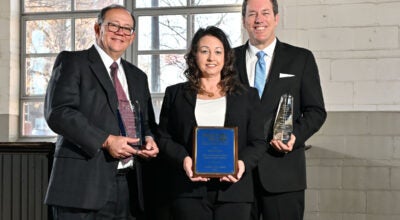Sales tax loss to remain unknown for months despite requirement to pass budgets by July
Published 12:10 am Wednesday, May 13, 2020
By Natalie Anderson
natalie.anderson@salisburypost.com
SALISBURY — Sales tax revenue comprises a significant portion of each county’s fiscal year budget, but the full impact of COVID-19 on sales tax revenues is still unknown.
And the months-long wait to receive the revenue can pose a challenge for counties, which are required to pass a balanced budget by July 1. County commissioners, meanwhile, must be presented with a balanced budget no later than June 1.
After March sales occur, retailers must remit taxes by April 20, according to the North Carolina Association of County Commissioners. Then, the North Carolina Department of Revenue calculates and prepares each county’s allocation in May before sending revenue on June 15. The three-month delay in receiving sales tax revenue, particularly during this time of uncertain projections, is leaving counties making the best guesses they can for their budgets.
It’ll take another month for the April revenue to reach counties, which economists anticipate included an even deeper economic decline.
Rowan County Manager Aaron Church said in a presentation to the Board of Commissioners on May 4 that the “projection is going to be a guess.” One of the first steps counties can take to help the financial blow is implement a hiring freeze of county employees, which commissioners approved at the May 4 meeting.
In last year’s county fiscal budget, the Rowan County commissioners adopted a budget of nearly $159.9 million, with $26.3 million of the revenue generated from sales tax. So, sales tax revenue comprised 16.5% of the county budget.
Last year, of the $3.5 billion in local sales tax revenue distributed to local governments, $2.3 billion was distributed to counties, according to the NCACC.
While sales tax revenue can take months to reach counties, occupancy tax rate estimates are available quicker, which can still serve as a “leading indicator” of what’s happening in the local economy since both occupancy and sales taxes move together, said Tourism Development Authority Director James Meacham.
Meacham said the hospitality, lodging and service sector contribute to about a third of the county’s overall economy.
He said revenue from March sales in the hospitality and service sector are down 33% compared to March 2019. And that includes 10-12 days of a strong economy before the state stay-at-home order was implemented. Additionally, he added that the March figures were originally on track to be 15% more than March 2019.
Meacham clarified figures include revenue from the occupancy tax and not retail sales.
He anticipates “much deeper decreases” in April.
Other economic projections estimate a bigger hit to April as well, since all of the month was under the stay-at-home restriction and mandatory business shutdowns. The N.C. Association of County Commissioners presents a scenario of a 40% decline in local sales tax revenue for April, which would total an almost $300 million loss statewide for all counties compared to 2019-2020 fiscal year. And with this same scenario, sales tax revenues statewide could potentially drop by 8-10% for fiscal year 2020-21 compared to the previous year.
Wells Fargo is projecting a decline of 8.7% in March sales, and other financial entities have projected similar numbers, according to the NCACC.
In Church’s presentation, which derived information from the NCACC, he stated that the impact on the county budget if the decrease is at 10% would result in a loss of $2.6 million to Rowan County. There would be a loss of $5.3 million if the decrease is at 20%.
The Rowan County Economic Development Commission sent out a survey in which a total of 121 businesses completed by the end of April, with 35 additional businesses partially completing it. Of the 121 businesses that completed the survey, 50 companies, 32.7%, reported they were closed.
All but one of the companies that closed reported doing so in mid-to-late March. Rowan EDC President Rod Crider noted that the increase of closures in a three-week span means COVID-19-associated shutdowns have hit businesses “really hard, really fast.”
Fortunately, Meacham said, “things have stabilized,” and he doesn’t foresee any further declines beyond April’s drop.
But others, including Crider and economist Dr. Michael Walden from N.C. State University, have said a big factor in economic recovery will depend on consumer and business confidence. Meacham anticipates a better sense of how the economy will recover and how confident consumers will feel in early to mid-July once stay-at-home restrictions are fully lifted.






